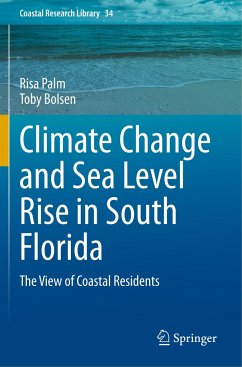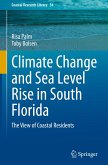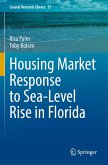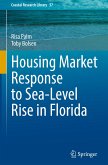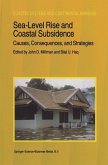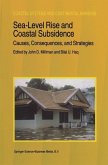South Florida is frequently cited as the part of the United State of America as most susceptible to the devastation accompanying sea level rise. Several scholarly studies have shown the negative impact of coastal location in Florida on housing values. Are the residents of South Florida concerned? Is susceptibility to sea level rise actually affecting the housing market in terms of demand, the availability of home mortgages, or house prices? Are people living at particular risk from sea level rise aware of this risk and more open to new information about climate change? Do they support policies and laws to mitigate the pace and extent of climate change? Answers to these questions are not only of general interest, but they are also key to our understanding of the human dimensions of this problem.
This book describes the results of a detailed survey in which respondents viewed a local map displaying flooding to their own community that would result from a Category 3 hurricane in 2033. It discusses political party identification and ideology that has an overwhelming impact in shaping views about sea level rise and climate change. This book has enormous implications for the effectiveness of communicating risk information. The text is important if we, as a nation, are to design communication strategies that will lead to broader policy to combat or mitigate this risk.
This book describes the results of a detailed survey in which respondents viewed a local map displaying flooding to their own community that would result from a Category 3 hurricane in 2033. It discusses political party identification and ideology that has an overwhelming impact in shaping views about sea level rise and climate change. This book has enormous implications for the effectiveness of communicating risk information. The text is important if we, as a nation, are to design communication strategies that will lead to broader policy to combat or mitigate this risk.

